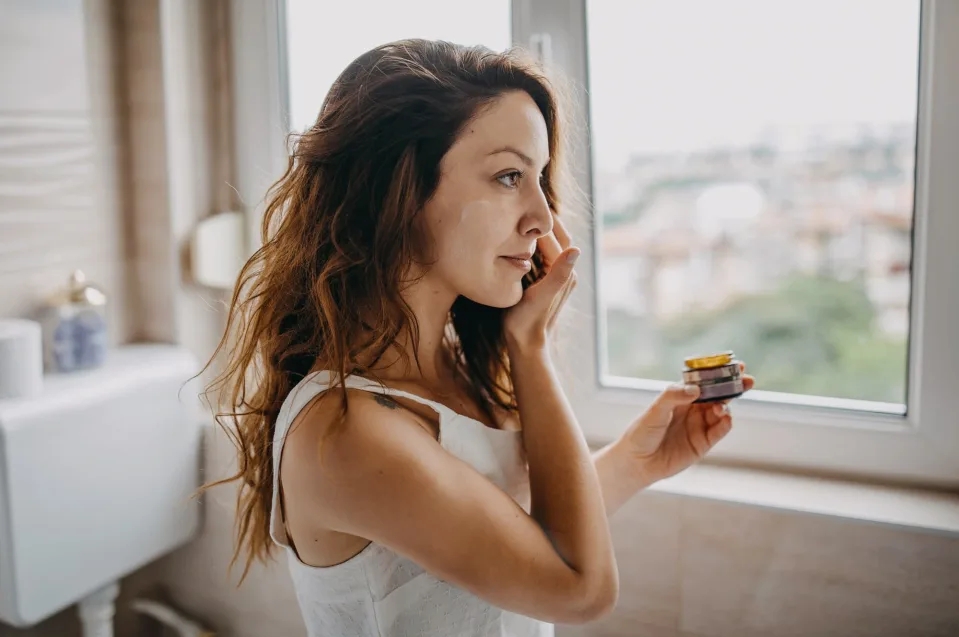

For many of us, air conditioning is essential to surviving the hot summer weather. Unfortunately, a side effect of staying cool and comfortable is that our skin often feels dry when exposed to air conditioners on a regular basis due to the lower humidity in the air. If turning off the air conditioner isn’t an option, there are some solutions. Here’s what some pros have to say about how you can enjoy the comfort of air conditioning this summer and avoid dry skin.
RELATED: The Real Cause of Dry Skin
Why does air conditioning dry out your skin?
The main function of an air conditioner is to remove moisture or water vapor from the air, causing it to condense and produce cool air. “Reduced humidity in the atmosphere can dehydrate the skin, making it dry,” says Lian Mack, MD, a board-certified dermatologist in Glamderm, New York.
Both air conditioning and heating systems can dry out your skin, says Anthony Rossi, MD, a board-certified dermatologist and founder of Dr. Rossi Derm MD skincare. “The skin becomes dry because it’s either not being supplied with moisture or it’s being leached out,” he says. “You may also notice that your throat feels dry due to the same problem.”
How to Protect Your Skin from Air Conditioning
Moisturizing and hydrating
Marisa Garshick, MD, a Manhattan Board-Certified Dermatologist and BioRepublic Consultant in Dermatology and Aesthetic Surgery, says moisturizing your skin is important to keep it hydrated. “Moisturizers that enhance hydration and lock in moisture can help restore moisture loss,” she says.
Dr. Rossi recommends focusing on humectants, which are found in many types of moisturizers to capture and retain moisture on the skin and help maintain the epidermal barrier on the top layer of the skin, limiting transepidermal water loss.
“[The moisturizer] lives up to its name,” says Dr. Rossi. “Biologically speaking, in our skin, there is something called a natural moisturizing factor, which is present in the stratum corneum, acts as a humectant, absorbs moisture from the atmosphere, and is sensitive to atmospheric humidity. ”
Staying hydrated is also important. “Drinking plenty of water on a regular basis will help hydrate your skin from the inside,” says Dr. Mack.
use a humidifier
Since air conditioning removes moisture from the air, all three dermatologists agreed that if you have extremely dry skin, it may be beneficial to use a humidifier to help relieve the dryness in the air. “The best thing you can do is install a humidifier in your home,” says Dr. Mack. “It adds moisture to the air and helps create a pleasant atmosphere. Of course, keep your humidifier and air conditioner clean to avoid bacterial and fungal growth.”
Dr. Mack also recommends keeping the plants in a cool room. “Plants increase air humidity by evaporating water from the soil to the leaves, a process called evapotranspiration,” she said.







